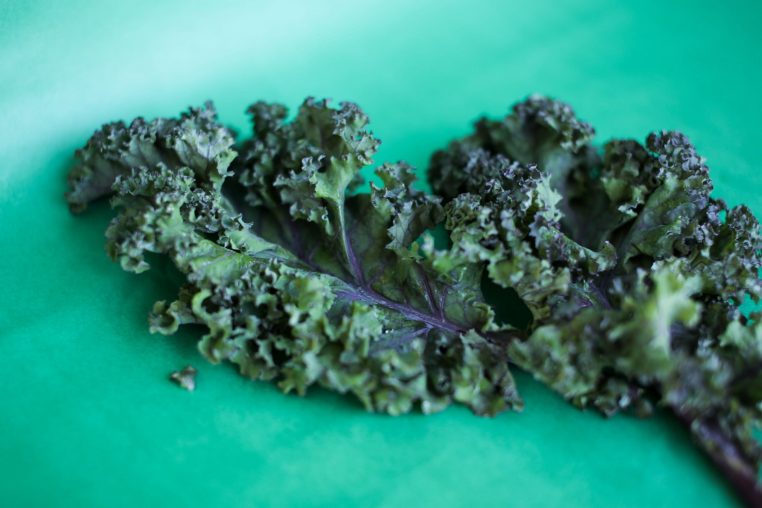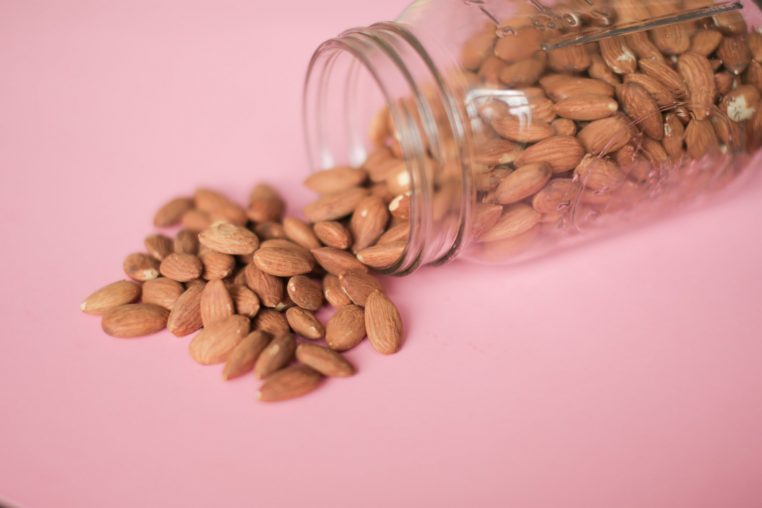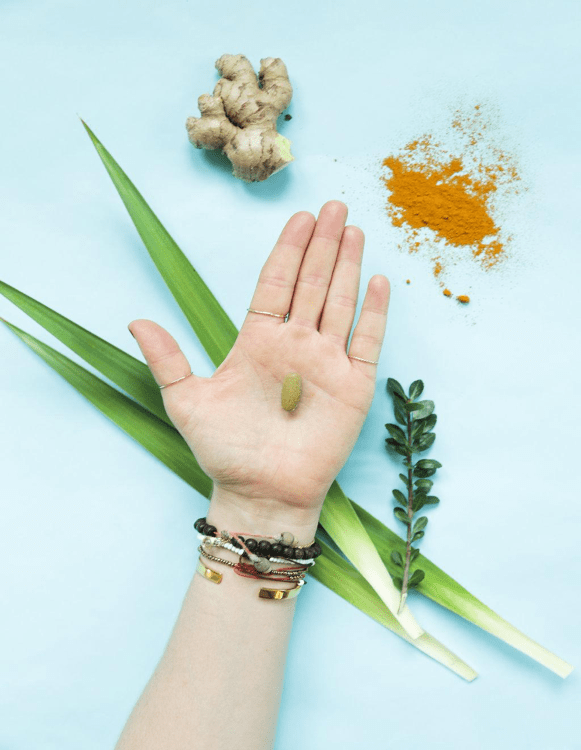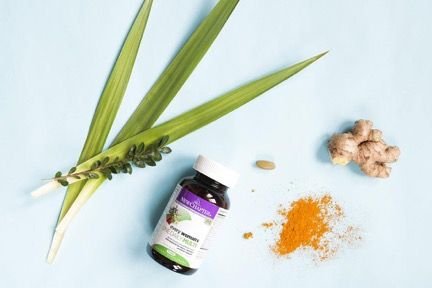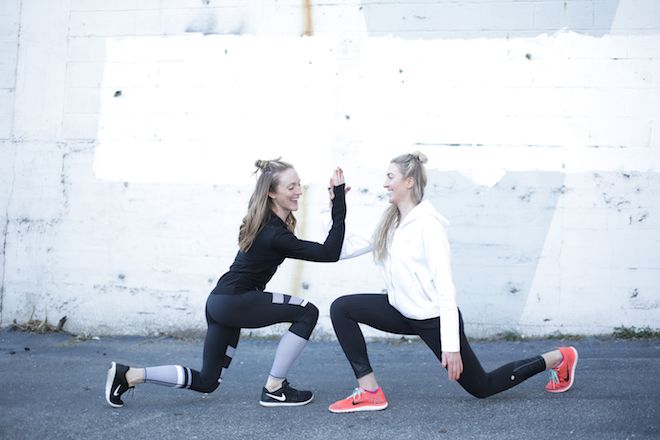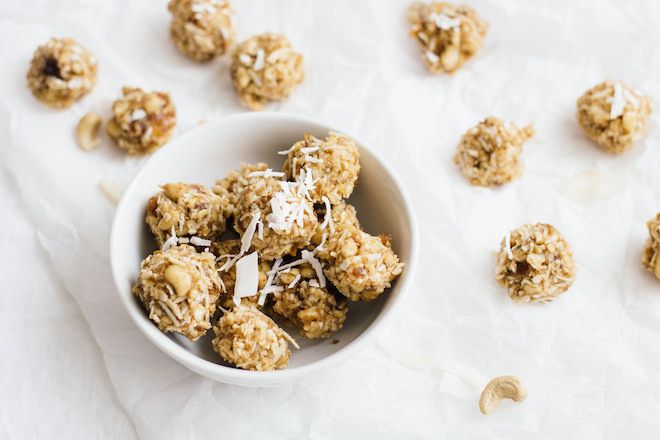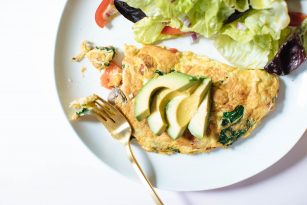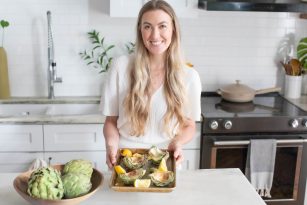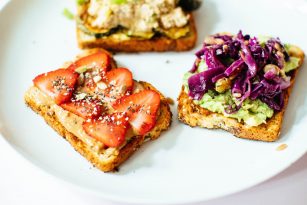Hey hey! The month of May on NS is all about women’s health awareness so we’re chatting wellness advice, nourishing recipes, and beauty foods to help you feel amazing! Today on the blog I wanted to round up questions I’ve been getting about women’s health and nutrition related to just us ladies. Sorry, fellas. If you have more questions that went unanswered here, comment below with em’. Let’s go!
The U.S. Department of Health and Human Services declared last week National Women’s Health Week (May 14-20th), but in reality we should be taking care of ourselves and have this awareness all year round, right? To kick this month off inspired by women’s health, let’s talk about health, nutrition, and of course answer your questions from Instagram, Twitter, and email from over this year!
Q&A
No. 1
What are calcium rich foods and why do I need them?
Before we chat about how and where to find calcium in food, it’s important to note who should pay special attention to calcium? Several groups of people may fall into the category of not getting enough calcium from their diet or those who aren’t absorbing the calcium they take in through diet.
● vegetarians,
● vegans,
● those suffering from Crohn’s or other IBD (inflammatory bowel diseases in general),
● those suffering from Celiac disease,
● those with compromised gut function,
● or athletes
Women, as we age, are also more susceptible to the breakdown of our bones, which may result in osteoporosis over time. Genetically, women have a particularly high risk of osteoporosis compared to men, so it’s recommended that women monitor their calcium intake to be sure they’re getting enough. Weight training is another great way (and my favorite!) to build bone density, which is another great reason you should hit the weights!
DARK LEAFY GREENS
● collard greens (26.7% DV per 100g cooked),
● turnip greens (19.7% DV per 100g cooked),
● kale (9.3% DV per 100g cooked),
● bok choy (10% DV per 100g),
● mustard greens (11% DV per 100g),
● watercress (12% DV per 100g),
● swiss chard (5% DV per 100g),
● spinach (9% DV per 100g),
● okra (8%DV per 100g),
● rhubarb (8% DV per 100g),
● broccoli (4% DV per 100g
MORE NON-DAIRY FOODS RICH IN CALCIUM
● blackstrap molasses (4% DV per 1 tablespoon)
● tofu (preferably organic)
● tempeh (preferably organic)
● tahini/sesame seeds (12% DV per 2 tablespoons!, my favorite)
● almonds (26% DV per 100g)
● navy beans
● figs (3% DV per 100g)
● seaweeds
SUPPLEMENTS
I realize that none of the above foods have 100% DV of calcium, and while we all should be getting a variety of these foods through the week to help increase the amount of calcium from whole foods, you can also boost it with a supplement- especially if you fall into any of the above categories. I’ve really been liking the New Chapter’s Every Woman’s One Daily Multivitamin which has calcium and is rich in vitamin D3. Read more on that in the next question!
No. 2
Should I take supplements for my overall health, like vitamin D, or which ones?
First off, let’s break down the word supplement. A supplement should do just that, SUPPLEMENT your existing healthy whole food diet and lifestyle. Supplements are needed to boost health during times of stress, illness, or to treat deficient vitamin/mineral states.
We live in a modern world with amazing advancements in technology, yet our soil lacks minerals that it once contained causing whatever grows out of it (i.e. fruits, vegetables, and whole foods) to be significantly lower in minerals than it once was. Not only is our soil different, but our food takes a long time to get to us! Unless we’re growing our own whole food in our gardens, picking it out with our bare hands, and washing it off before eating, most likely our produce has been picked weeks before it reaches your grocery store and is purchased by you. This entire process can take weeks and cause nutrients to be depleted from the whole food (2).
The most common vitamin deficiencies (especially in those who eat a vegan diet) are:
- Zinc
- Iodine
- Iron
- Magnesium
- Vitamin D
- Vitamin B12
First off, if you suspect you have a vitamin deficiency or you fall into one of those groups, you should definitely chat with your doctor or dietitian to determine which are lacking in your diet. And like I stated earlier, if you want to be sure you getting the recommended levels of vitamins and nutrients, I recommend a multivitamin like New Chapter’s Every Woman’s One Daily Multivitamin. It’s expertly formulated for active women with nutrients for energy, stress, immune, heart and bone support*. My favorite thing about them is that they’re made with superfood herbal blends that include ginger, organic turmeric, chamomile and European elderberry. The cool thing about New Chapter’s supplements is that they’re fermented with probiotics and whole foods, so they’re gentle enough to take on an empty stomach.** They’re also Non-GMO Project Verified, gluten-free, and vegetarian, which is great for so many lifestyles.
Things you can try: probiotics for a happy belly, New Chapter’s Every Woman’s One Daily (directly or Amazon), digestive enzymes
No. 3
What are the best workouts for women?
If you’re not lifting weights already… what are you waiting for? Let me start by answering a question I get all the time — no, lifting weights isn’t just for men, everyone can reap the benefits of muscle growth. Lifting weights stimulates your lean body mass (i.e. muscle) to strengthen you from within and helps maintain healthy bone density (as mentioned earlier). Having more lean body mass – versus more fat mass – provides us with the strength we need to carry out our daily tasks, supports our core and spine, supports hormonal and bone health, AND allows our bodies to burn more calories and burn fat even while sitting. Resistance training can help decrease risks for osteoporosis, heart disease, type 2 diabetes, depression, obesity, aches and pains, and lastly arthritis. It also helps us mentally since weight training and working out, in general, makes us feel good thanks to all those endorphins that are released when your workout. You also get the added benefit of helping our metabolism, getting stronger, building muscle, and decreasing body fat when paired with well-balanced nutrition!
Weight lifting can also be incorporated with cardio, so do whatever workout gets your heart pumping that you ENJOY! It’s all about getting moving in the first place, so find a workout you like.
Things you can try: HIIT workouts, partner workouts, yoga, foam rolling, mixing up my routine
No. 4
What are the best foods to keep our hormones happy?
Don’t fear the fats! Healthy fats provide the structural component to many cell membranes which are essential for cellular development and carrying various messages (hormones) through our body quickly. Protein is also responsible for hormone production, so it’s important for women to get foods that will provide you with healthy fats and protein. Women’s cycles can also deplete your body of B vitamins, iron, zinc, and magnesium so you should be aware of your whole food intake and possibly choose to supplement (see above for more if it’s right for you).
My top 5 favorite foods for happier hormones:
- Salmon. Rich in omega-3 fatty acids and protein. If you’re vegetarian, opt for chia seeds, flaxseeds, hemp seeds, or raw walnuts.
- Cacao nibs or dark chocolate. High in magnesium which is important for that time of the month since it’s been show to alleviate headaches, cramping, and mood swings.
- Asparagus. Rich in B vitamins and a natural diuretic so great to beat the bloat.
- Avocado. My favorite source of healthy fats and high in fiber which will help rid your body of excess estrogen.
- Nutritional yeast. High in B vitamins and a source of plant based protein.
Things you can try: plant based protein powder, energy balls like the Energy Almond Butter Balls and Coconut Cashew Energy Balls, cooking with coconut oil for added healthy fats, Nourish Bowls for a meal with healthy fats, protein, and B vitamins (especially with nutritional yeast and olive oil on top).
No. 5
I feel like I’m juggling it all, how to I manage my stress?
Stress can wreak serious havoc on our bodies, but we actually need stress to a certain extent. For example, if we were running from a bear, we would need our stress response to kick in full force. We would start breathing faster, sending more oxygen to muscles to fuel movement, then our bodies would release stress hormones from our adrenal glands (cortisol) to heighten our focus by tapping into energy reserves for fuel so we could flee the danger. Cortisol isn’t always the bad guy, but when this response is high and chronic it tells your body to eat more than it “needs” because it’s thinking much more about survival, not stress over a work deadline or relationship woe. Cortisol is needed, but high levels of cortisol over time will contribute to those mentioned health impacts, especially abdominal weight gain! The problem is when we’re actually not in danger and our bodies are living in this state chronically. THIS is the magic piece of the puzzle – learning how we can turn off that heightened stress response when it’s not needed.
Read my tips for managing stress in this post.
Things you can try (that I LOVE): essential oil diffuser, lavender essential oil, Turmeric tea, walks outside, etc.
This post is sponsored by the New Chapter team; all opinions remain my own and sponsored posts help to support Nutrition Stripped! Always chat with your physician when/if adding supplements to your routine.
*These statements have not been evaluated by the Food and Drug Administration. This product is not intended to diagnose, treat, cure, or prevent disease.
** Certified Organic by International Certification Services, Inc., Medina, ND, USA




